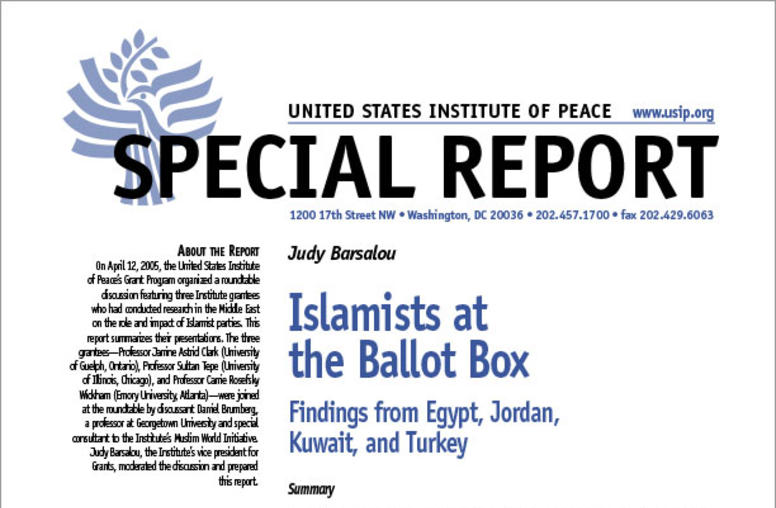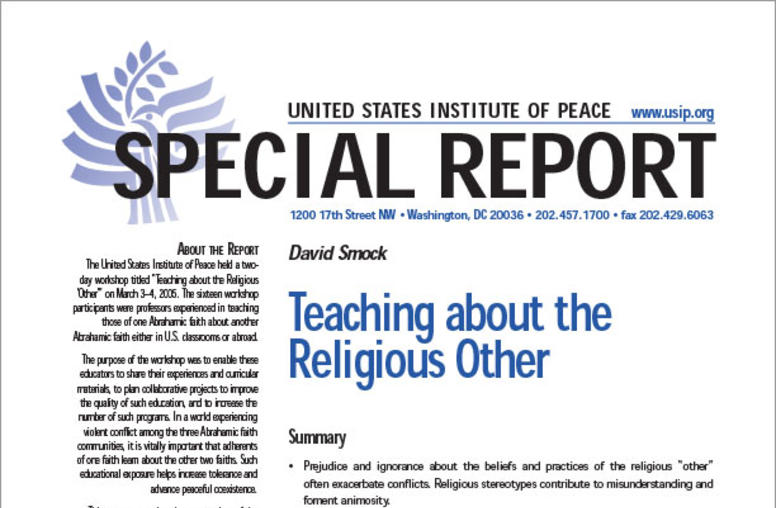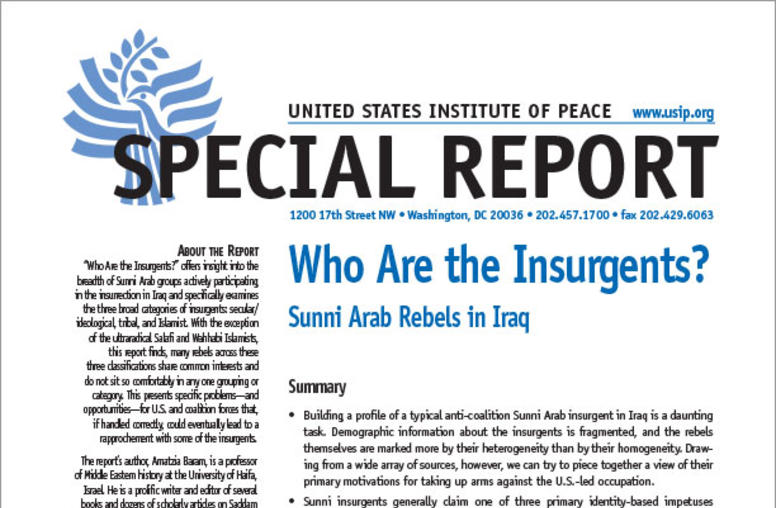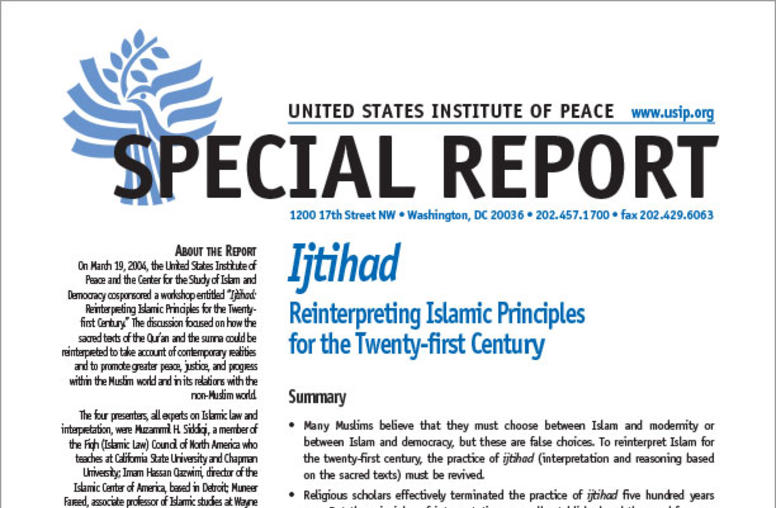Publications
Articles, publications, books, tools and multimedia features from the U.S. Institute of Peace provide the latest news, analysis, research findings, practitioner guides and reports, all related to the conflict zones and issues that are at the center of the Institute’s work to prevent and reduce violent conflict.
Arab Media: Tools of the Governments; Tools for the People?
In the aftermath of 9/11, a shocked U.S. government and public asked, "Why do they hate us?" bewildered that the so-called Arab street views them—us—with extreme antipathy. Since that day in September, an urgent desire to quench this seething regional hostility has seized the government, hoping to mitigate or at least deflect any future terrorist attacks.

Islamists at the Ballot Box: Findings from Egypt, Jordan, Kuwait, and Turkey
On April 12, 2005, the United States Institute of Peace's Grant Program organized a roundtable discussion featuring three Institute grantees who had conducted research in the Middle East on the role and impact of Islamist parties.

Teaching about the Religious Other
The United States Institute of Peace held a two-day workshop titled "Teaching about the Religious 'Other'" on March 3–4, 2005. The sixteen workshop participants were professors experienced in teaching those of one Abrahamic faith about another Abrahamic faith either in U.S. classrooms or abroad. This report summarizes the presentations of the participants, introduces some promising new programs for teaching about the religious other, and offers lessons drawn from the discussion. It was writte...
The United States and Pakistan: Navigating a Complex Relationship
Christine Fair testified on June 30, 2005, before the U.S. Commission on International Religious Freedom on “The United States and Pakistan: Navigating a Complex Relationship." She discussed ideas for future U.S. policy for Pakistan and suggests that the U.S. maintain a strategic focus on Pakistan, beyond that country's willingness and ability to cooperate in the U.S.-led War on Terrorism.

Who Are the Insurgents? Sunni Arab Rebels in Iraq
"Who Are the Insurgents?" offers insight into the breadth of Sunni Arab groups actively participating in the insurrection in Iraq and specifically examines the three broad categories of insurgents: secular/ideological, tribal, and Islamist. With the exception of the ultraradical Salafi and Wahhabi Islamists, this report finds, many rebels across these three classifications share common interests and do not sit so comfortably in any one grouping or category.

Political Islam in Sub-Saharan Africa: The Need for a New Research and Diplomatic Agenda
Summary An understanding of the multifaceted nature of political Islam on the African subcontinent is a precondition for the formulation of an effective U.S. policy toward the region. Such a formulation would place political Islam in a historical and contemporary context. In East Africa, discrimination against Muslims—which began in colonial mission schools and continued in education and employment following independence—played an important role in the development of political Islam...
Who Are the Insurgents? Sunni Arab Rebels in Iraq (Arabic Edition)
Summary Building a profile of a typical anti-coalition Sunni Arab insurgent in Iraq is a daunting task. Demographic information about the insurgents is fragmented, and the rebels themselves are marked more by their heterogeneity than by their homogeneity. Drawing from a wide array of sources, however, we can try to piece together a view of their primary motivations for taking up arms against the U.S.-led occupation.
Militant Recruitment in Pakistan
A program officer in the Muslim World Initiative speaks before a Capitol Hill study group about Islamic militant organizations in Pakistan.

Ijtihad: Reinterpreting Islamic Principles for the Twenty-first Century
Summary Many Muslims believe that they must choose between Islam and modernity or between Islam and democracy, but these are false choices. To reinterpret Islam for the twenty-first century, the practice of ijtihad (interpretation and reasoning based on the sacred texts) must be revived. Religious scholars effectively terminated the practice of ijtihad five hundred years ago. But the principles of interpretation are well established and the need for contemporary interpretation is co...
Ijtihad: Reinterpreting Islamic Principles for the Twenty-first Century (Arabic Edition)
Summary Many Muslims believe that they must choose between Islam and modernity or between Islam and democracy, but these are false choices. To reinterpret Islam for the twenty-first century, the practice of ijtihad (interpretation and reasoning based on the sacred texts) must be revived. Religious scholars effectively terminated the practice of ijtihad five hundred years ago. But the principles of interpretation are well established and the need for contemporary interpretation is co...